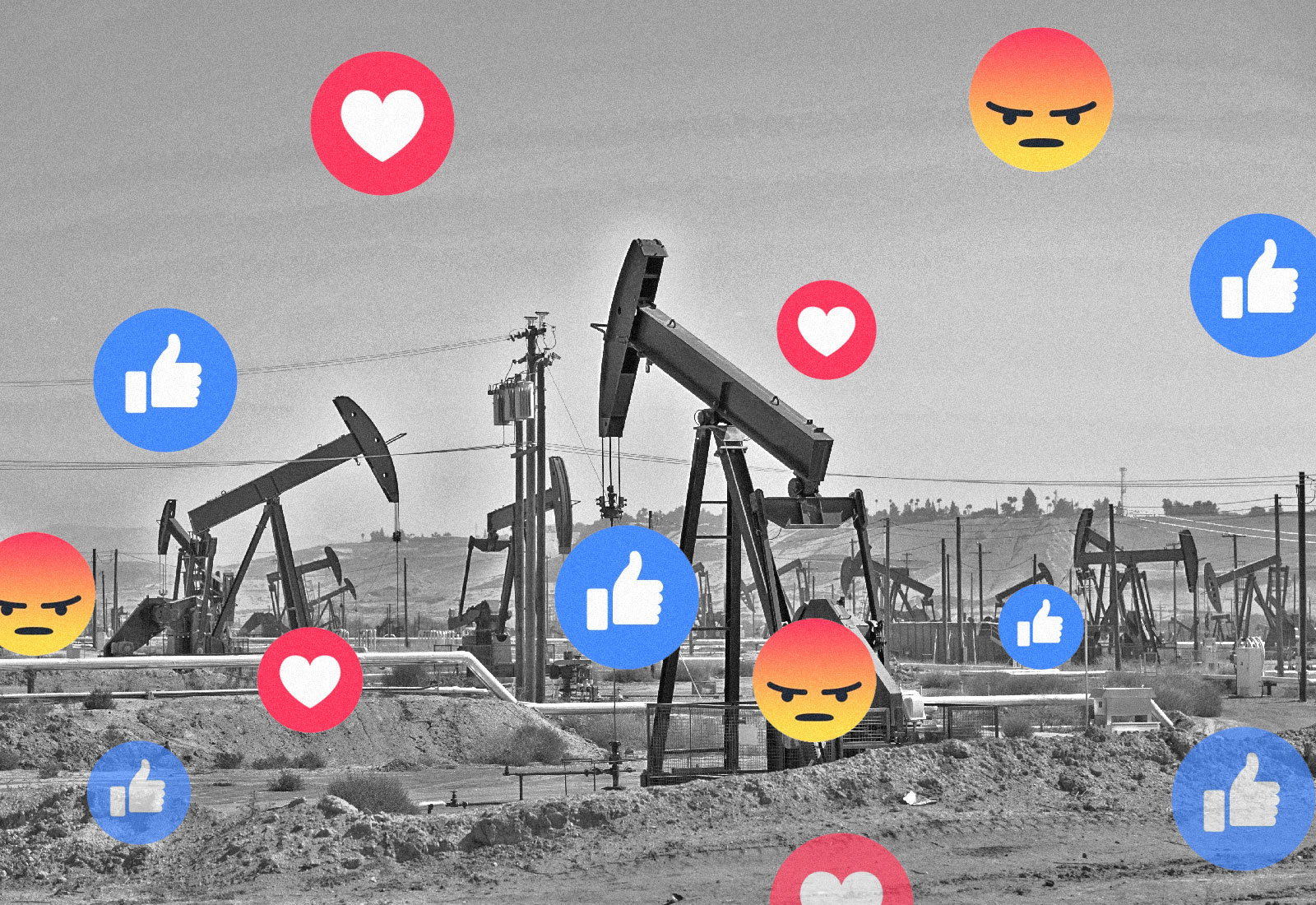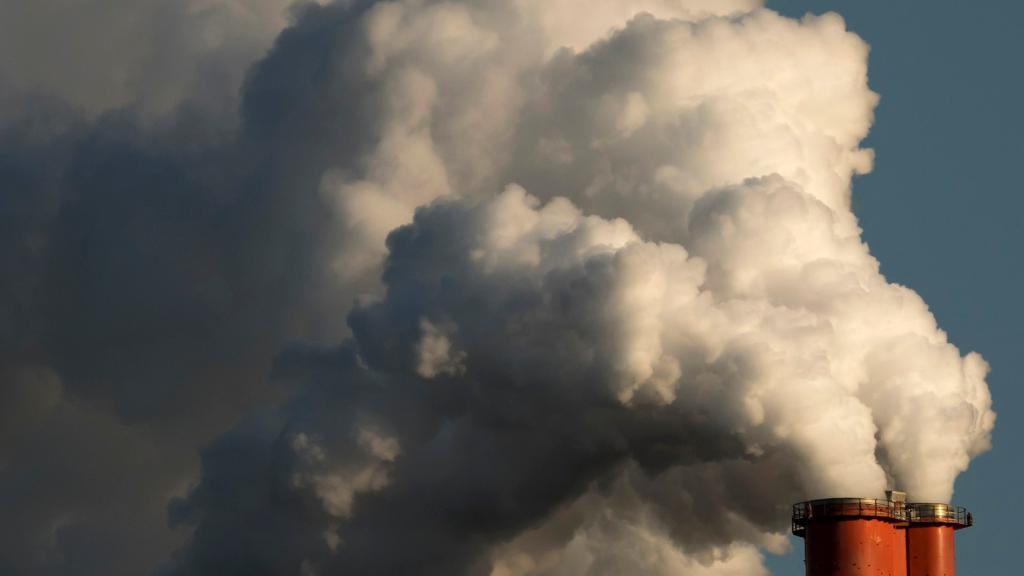Online advertisers are always trying to sell you something, and in the case of slip-on sneakers or leather handbags, that something is pretty clear. But other times, the motive behind a sponsored post is less transparent. Why, for instance, are oil companies buying prime space in your social media feed to prattle on about “innovative” climate solutions and visions of a “lower-carbon future”?
A new report makes the case that the oil and gas industry is trying to sell you a story — one that casts these companies as paragons of sustainability and seeks to delay policies that would address climate change. Last year, the oil and gas industry spent at least $9.6 million on ads on Facebook’s U.S. platform, according to an analysis by the think tank InfluenceMap. Just over half of this spending came from one company, ExxonMobil.
“The oil and gas industry is engaging in this really strategic campaign using social media and the tools available, particularly these targeting tools on Facebook, to reach a really broad audience pretty easily,” said Faye Holder, program manager at InfluenceMap.
The report looked at roughly 25,000 of these ads, analyzing their messages and whom they were targeting. The decision to focus on Facebook ads, which represent only a fraction of the oil industry’s wider campaign to influence the discourse on climate change, was made for data reasons. “We just looked at Facebook,” Holder said. “That is because the other social media platforms don’t even offer this transparency.”
Oil companies have long sought the help of public relations whizzes to burnish their reputations, painting themselves as environmental champions, plastering their logos all over science museums and jazz festivals, and even hiring Instagram influencers to tout the merits of gas stoves. In recent years, climate advocates have honed in on ways to counter these tactics — launching a campaign demanding that PR firms drop fossil fuel clients, for instance, or trolling oil companies on social media. Some climate groups have decided to fight fire with fire, recently funneling $1 million directly into anti-oil advertisements.
The oil industry’s more recent ads use subtler messages than outright climate denial to undermine action on global warming, such as portraying natural gas as a green fuel source and arguing that decarbonization would make energy unaffordable. Last year, companies’ Facebook ad spending soared when it looked like the federal government might do something to address rising emissions. For example, spending jumped dramatically last summer when then-presidential candidate Joe Biden released his climate plan, and stayed high until after the November election.

Those 2020 spending patterns follow a long-time trend: The scale of the oil and gas industry’s advertising efforts has historically tracked with politicians’ interest in taking action on the climate crisis. The world’s five largest oil companies spent $3.6 billion on promotional ads from 1986 to 2015. Spending shot up around 1997, when countries were considering the Kyoto Protocol, an attempt to set legally binding cuts on greenhouse gas emissions. The peak of oil companies’ ad blitz occurred in 2010, when Congress was mulling over a national cap-and-trade program (that ultimately didn’t pass).
As part of InfluenceMap’s analysis, researchers broke down last year’s Facebook ads based on the location of targeted users. “In terms of the distribution regionally of the ads, we saw that they were focused towards states with really high levels of production of oil and gas but also swing states,” Holder said. “So it sort of plays into that very politically motivated effort.” Interestingly, the advertisements tended to target men more than women.
Looking at oil and gas’ 25 biggest Facebook ad spenders, the analysis found that each segment of the industry was pushing a slightly different message. Individual companies promoted the affordability and reliability of their products (“Ann chose natural gas, and now she can invest the savings back into her business”). The American Petroleum Institute, the industry’s biggest lobbying group, talked more about oil and gas being part of the “solution” to climate change. Finally, pro-fossil fuel advocacy groups argued that the industry was helping communities and the economy (“fracking supports thousands of jobs”) and emphasized philanthropic efforts.
The report has prompted some critics to question Facebook’s commitments to climate action; the company has tried to highlight its small carbon footprint, announcing earlier this year that its operations were already running on 100 percent renewable electricity. “Despite Facebook’s public support for climate action, it continues to allow its platform to be used to spread fossil fuel propaganda,” said Bill Weihl, former sustainability director at Facebook, in a statement.



